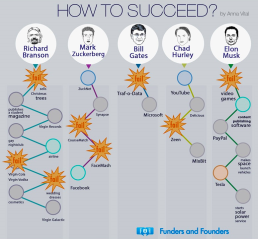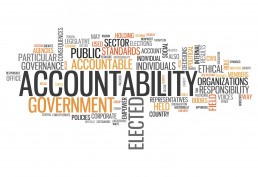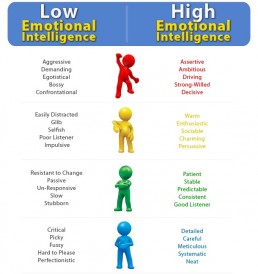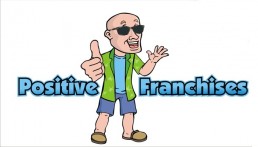Hospitality in Franchising is just SMARTICLE.
Yes, Smarticle is a word, another Urban Dictionary find! woot woot! Actually, Smarticle was made famous by Homer Simpson and the irony within is fantastic. Ironic because Homer is a very simple man and the idea of Joy or a.k.a. smarticle is also just so very simple.
I recently spoke in one of my posts about people and their impact on business (the people post). What I did not specifically say in that post about those particular people were that one of the key things that made all of them truly great at what they do is their hospitalitude. OK, that word I totally made up, do you see it? Hospitality/Attitude. It is what I would describe as their ability to bring Joy to every guest, the ability to check their problems at the door and focus on the task at hand. To make their guests experience a truly memorable one each and every time. Dare I say, treat them like family.
I had a manager many years ago that was as hospitable as they come, a well known GM in the city who bought every customer he met a drink, always a smile, always a hand shake and always a drink to be given out. He was well liked by all of our guests. But, so was I, and I barely bought a drink for anyone. Don Cooper says in this video that its theatre and he is right, so right. My manager was great at the theatre but what I learned from this manager was that it wasn’t only theatre but respect and joy to see our guests. My manager would use his promo tab for the month in under two months, where as I would not use 10% of it in the month. Why? Because it was my genuine interactions and the joy I had in dealing with them that kept them happy. I knew their birthdays, their anniversaries, their kids names, their friends and on and on…..Joy and respect are the value added items that no one can describe, its the ingredient that keeps people coming back without them even knowing why. Yet so many refuse to use it in dealing with their clients and guests.
I challenge you to be smarticle today, bring Joy to your clients, guests, friends and family. Be joyful, you’ll be amazed what you get in return.
- Donald Cooper, MBA, has been both a world-class manufacturer and an award-winning retailer. He speaks and coaches internationally on marketing, management and business excellence.
Donald can be reached at donald@donaldcooper.com in Toronto, Canada. To read more of his articles, go to www.donaldcooper.com and click on “Free Articles”.
Attitude
I preface this blog posting this week by saying that I am going to steal a few tidbits from my mentors and from an item/posting I saw on LinkedIn today.
All too often our attitudes get in the way of our success. There are many, many reasons are attitudes change our mindsets but I believe the number one way that you can adjust your attitude is by surrounding yourself with people with generally positive attitudes. Take a look at this picture, can you think of either of these tycoons that you haven’t always seen in a positive light, with a good attitude? 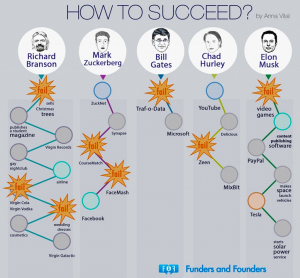
Success has so much to to do with NOT giving up, to keep on striving for your goals and therefore having a good attitude. After all, how do you overcome your failures if you can’t keep a good attitude on the outcomes.
At Joey’s Franchise Group, we stole a mantra from Simon Sinek that we try to live by and instill Values into our franchise community to keep great attitudes;
- Take an unconventional perspective
- Keep it simple
- Make long term progress
- Share………and,
- Silver Line it!
The goal is not necessarily to fix thing that are broken but to amplify the things that work!
Accountability

When a franchisee buys into a brand and opens their franchise there is obligations for both parties, the franchisee must; open their franchise in a timely manner, adhere to the standards an procedures outlined by the franchisor, etc etc., the franchisor must; provide the systems and standards, coach and train the franchisee’s on the those systems and standards etc..
So there is obligations? But what about the accountability? The accountability the franchisor should have to ensure the success of its franchisee’s, taking responsibility for its system. On the flip side, what about the accountability of the franchisee to fulfill its obligation and make an effort in its business and not solely rely on the franchisor to do so.
Far too often the disconnect between the franchisor/franchisee is about full time and attention by the franchisee and the “lack of support” that the franchisee feels they get. How do we connect these two groups again? How do we get franchisee’s to understand that as a franchisor you can provide the systems, the knowledge, the advertising but if the franchisee does not execute on their end when a customer uses their franchise, then there is nothing the franchisor can do?
Both parties have to start with being accountable to the other. Both have to fulfill their obligations to the other and hold each other ‘accountable’ from the very start. Both need to build and nurture the franchise relationship. As a franchisor if you have a franchisee who can’t or won’t do this, then you’ve got the wrong partner. As a franchisee, if you aren’t willing to adhere to the system and give it full time and attention, then you’ve probably chosen the wrong platform to do business. Franchises are great because your buying into a proven business system, many have tried and possibly failed before you to help improve your success rate. The system is in place but it still takes the individual(s) franchisee to execute it.
At Joey’s Franchise Group, we have proven the success of all of our systems and we pride ourselves in our open and honest role in our accountability to help our franchise partners execute their systems. Make sure the franchisor you choose can do the same!
Entrepreneur - The best franchise advice you'll get.
When you are looking into a franchisor the best thing to look at is the success of their partners and how they interact with them. Franchise systems  are made to be simple, understandable and certainly, repeatable! I am sharing a great article by Jeff Elgin in Entrepreneur Magazine that dictates everything you should do when researching a franchise system. I encourage you to do everything he suggests and put Joey’s Franchise Group to the test!
are made to be simple, understandable and certainly, repeatable! I am sharing a great article by Jeff Elgin in Entrepreneur Magazine that dictates everything you should do when researching a franchise system. I encourage you to do everything he suggests and put Joey’s Franchise Group to the test!
Check out his article here: The best franchise advice you’ll get…..
MVP Modern Barbers in Canadian Business Franchise Magazine
Take a read of this article about our Franchise Partner Jodi Tucker at our South Surrey location. Jodi worked with MVP Modern Barbers for many years in our Kelowna Franchise before shearing off to the Lower Mainland to open her own Franchise. (see what i did there! haha Shear).
MVP Modern Barbers Article in Canadian Business Franchise
People don't buy what you do, they buy what you believe....
Simon Sinek started this movement, we just stole it. Thanks Simon
At Joey’s Franchise Group we always strive to fight for what we believe, whether it be the best quality seafood for our Joey’s and Joey’s Urban Restaurants, or the quality of printing and paper we demand for our Homes & Land Magazine or better so, the Charities we choose to align ourselves with at MVP Modern Barbers.
This month is #Movember 2014. If you haven’t already been directly affected by Mens Health issues, specifically Prostate Cancer, then you most likely will be soon or know someone that has had to.
[fusion_builder_container hundred_percent=”yes” overflow=”visible”][fusion_builder_row][fusion_builder_column type=”1_1″ background_position=”left top” background_color=”” border_size=”” border_color=”” border_style=”solid” spacing=”yes” background_image=”” background_repeat=”no-repeat” padding=”” margin_top=”0px” margin_bottom=”0px” class=”” id=”” animation_type=”” animation_speed=”0.3″ animation_direction=”left” hide_on_mobile=”no” center_content=”no” min_height=”none”]
We strongly believe in this cause and have teamed up in Calgary this month with Calgary’s All New Alternative Rock Radio Station, @x92.9. Our MVP executive staff have joined the respective teams of Lynch and Tyler (the morning show team) to #kickcancersass! Join the battle between Paul Clissold (MVP Owner) and Rob Hilditch (his lacky, aka, ME) as they complete for the best stache and biggest donation money list! Check out Rob’s Mopage here; ROB’s MOpage (hey it’s my Blog!). You can search for Paul if you really want to.
I lost a mentor, friend and a great man to Prostate Cancer in 1999, in fact 15 years ago today. He past after fighting it and beating it once, 9 years earlier. He got to meet his grand daughter, thankfully, born in May of 99′, and I tell her everyday how great he was and how much she reminds me of him.
I’m fighting this fight because of him, because of her, my other two daughters, my wife and every other family that has had to deal with the tragedy that cancer leaves behind.
We believe…….Donate hard.
http://mobro.co/10633485[/fusion_builder_column][/fusion_builder_row][/fusion_builder_container]
13 Things to Consider when Buying a Franchise in Canada
 Great Article by;
Great Article by;
Tony Wilson
Special to The Globe and Mail
Published Tuesday, Sep. 09 2014, 5:00 AM EDT
Last updated Tuesday, Sep. 09 2014, 8:30 AM EDT
1. What’s a franchise? A franchise is essentially a licence to operate the franchisor’s business system and use its trademark according to the franchisor’s standards. The term is normally for between 5 and ten years, depending on the agreement and the lease. In exchange for the right to carry on business under the franchisor’s trademark and system, the franchisee usually pays the franchisor an initial fee for these rights (somewhere between $15,000 and $100,000), and an ongoing royalty linked to the gross sales of the franchised outlet (between 5 per cent and 8 per cent of gross sales). There’s usually a requirement for the franchisee to make regular contributions to a regional or national advertising fund as well (between 1 per cent and 4 per cent of gross sales), so that the franchisor can advertise the brand in high-cost media using the contributions of all franchisees. If it’s a bricks and mortar business, the franchisee either constructs and develops the premises itself (at its cost) or can buy the constructed premises on a ‘turnkey’ basis from the franchisor.
Franchisors are essentially selling three things: the value of a (hopefully) recognizable trademark and brand; the know-how associated with the franchisor’s business system (and the franchisor being able to teach that know-how to the franchisee); and the lower unit costs that come from the purchasing power of a large buying group
2. You’re not buying the business system, you’re renting it. You’re simply acquiring the rights to use a franchisor’s business system, trademark and ‘know-how’ for 5 or ten years, depending on the term of the franchise and any renewal rights contained in the franchise agreement. Think of it like a lease. You’re ‘renting’ the franchisor’s business system and brand for a time, and when that time is up, it’s over. Those rights revert back to the franchisor, who can sell those rights to someone else
3. Renewal and assignment rights are not automatic. Virtually all franchise agreements allow for the right to renew for at least one term, and permit the franchisee to assign the contract. But there are always conditions (and fees) that go along with the exercise of renewal and assignment rights. If you don’t meet those conditions, you wont be able to renew or assign.
4. Critically assess the FDD and all financial and other information given to you. Franchisors awarding franchises in Alberta, Ontario, Manitoba, New Brunswick and PEI are required by law to provide a FDD to prospective franchisees at least 14 days before the franchisee signs any agreement relating to the franchise or pays any money (this differs slightly depending on the province).
The FDD is required to contain all material facts relating to the franchise investment, and there are very serious legal remedies available to franchisees if the franchisor fails to comply with its disclosure obligations. Read the FDD and the documents attached to it carefully with your lawyer and financial advisor. Remember that although these documents will assist you in assessing the nature of the investment, they’re always written for the franchisor’s benefit, and will be crafted to put the franchisor and the franchise system in the best light possible, even when there are lawsuits and other problems facing the franchisor. Also appreciate that if you are in B.C., Saskatchewan, Nova Scotia, Newfoundland and Quebec, there is no legal obligation for a franchisor to provide you with its FDD, and no statutory remedies available to you in the event the franchisor fails to disclose a material fact relating to the franchise as in Ontario, Alberta and the other ‘disclosure provinces.’
5. Be careful of U.S. franchise agreements that have not been adapted to Canadian laws. Sometimes U.S.-based franchisors forget that Canada is a separate country. They don’t modify their agreements to suit Canadian laws. In particular, a U.S. franchisor may not have contemplated the effect of Canadian withholdings tax, something I’ve written about before and which could cost you additional money if not dealt with at the outset of the arrangement.
6. Don’t get sidetracked negotiating the boilerplate. Franchisors pay their lawyers lots of money to draft standard, solid and enforceable franchise agreements that they can use with all their franchisees with little or no amendments. The franchisee lawyer that sends the franchisor a 25-page list of changes to the franchisor’s agreement is arguably unfamiliar with the norms of the franchising relationship. Part of the lawyer’s job is to know what’s ‘normal’ and what’s not; what’s negotiable and what’s not.
7. If you can, avoid entering a franchise agreement where both you and your spouse have to guarantee the contract. It only means the franchisor has two of you to sue if the business fails. If at all possible, limit your exposure so that only one of you assumes all the risk. You might also consider capping any personal guarantee to a maximum amount.
8. Trademarks. Does the franchisor own or control the trademark? (The Canadian Intellectual Property Office has a search engine that allows you to check trademark applications and registrations here)
9. Pricing for products. What assurances are there that the products for sale by the franchisor can be bought by the franchisee at competitive prices? What if the products for sale have to be shipped from another part of the country, or another country? Have you factored in freight costs and duty? A 91-cent dollar can create problems for Canadian franchisees who may be required to buy products from the U.S. in U.S. dollars and pay royalties and other fees in U.S. dollars.
10. Exclusive territory. Are you getting an exclusive territory as part of the deal? Can it be lost or reduced?
11. Don’t forget to talk to other franchisees in the system. Even if they’re in other parts of the country thousands of miles away, their input is invaluable. And if they are reluctant to speak with a stranger out of the blue, ask these three questions: Are you happy? Are you making any money? Would you do it again?
12. If the franchisor is not a member of the Canadian Franchise Association (CFA), ask ‘why not?’ The CFA is the only association of franchisors and service providers in the franchise industry in Canada. It has extensive rules on ethical franchising and advises prospective franchisees to investigate before investing. If the franchisor isn’t a member, why not?
13. Don’t let your expectations get away from you. Finally, like any other investment, acquiring a franchise involves a high degree of risk. Some franchises work out very well for the franchisees. And some do not. Do not sell the concept to yourself. Be prepared to walk away.
Joey’s Franchise Group has a franchise that fits your needs and these rules. Call Rob Hilditch at 1-800-661-2123 for more details.
Tony Wilson is a franchising, licensing and intellectual property lawyer at Boughton Law Corp. in Vancouver, he is an adjunct professor at Simon Fraser University (SFU), and he is the author of two books: Manage Your Online Reputation, and Buying a Franchise in Canada. His opinions do not reflect those of the Law Society of British Columbia, SFU or any other organization.
Original Link:
http://www.theglobeandmail.com/report-on-business/small-business/sb-growth/day-to-day/thirteen-things-to-consider-before-buying-a-franchise-in-canada/article20471510/
Emotional Intelligence
 Emotional Intelligence
Emotional Intelligence
Developing strong “people skills”
We probably all know people, either at work or in our personal lives, who are really good listeners. No matter what kind of situation we’re in, they always seem to know just what to say – and how to say it – so that we’re not offended or upset. They’re caring and considerate, and even if we don’t find a solution to our problem, we usually leave feeling more hopeful and optimistic.
We probably also know people who are masters at managing their emotions. They don’t get angry in stressful situations. Instead, they have the ability to look at a problem and calmly find a solution. They’re excellent decision makers, and they know when to trust their intuition. Regardless of their strengths, however, they’re usually willing to look at themselves honestly. They take criticism well, and they know when to use it to improve their performance.
People like this have a high degree of emotional intelligence, or EI. They know themselves very well, and they’re also able to sense the emotional needs of others.
Would you like to be more like this?
As more and more people accept that emotional intelligence is just as important to professional success as technical ability, organizations are increasingly using EI when they hire and promote.
For example, one large cosmetics company recently revised their hiring process for salespeople to choose candidates based on emotional intelligence. The result? Salespeople hired with the new system have sold, on average, $91,000 more than salespeople selected under the old system. There has also been significantly lower staff turnover among the group chosen for their emotional intelligence.
So, what exactly is emotional intelligence, and what can you do to improve yours?
What is Emotional Intelligence?
We all have different personalities, different wants and needs, and different ways of showing our emotions. Navigating through this all takes tact and cleverness – especially if we hope to succeed in life. This is where emotional intelligence becomes important.
Emotional intelligence is the ability to recognize your emotions, understand what they’re telling you, and realize how your emotions affect people around you. Emotional intelligence also involves your perception of others: when you understand how they feel, this allows you to manage relationships more effectively.
People with high emotional intelligence are usually successful in most things they do. Why? Because they’re the ones that others want on their team. When people with high EI send an email, it gets answered. When they need help, they get it. Because they make others feel good, they go through life much more easily than people who are easily angered or upset.
Characteristics of Emotional Intelligence
Daniel Goleman, an American psychologist, developed a framework of five elements that define emotional intelligence:
- Self-Awareness – People with high emotional intelligence are usually very self-aware. They understand their emotions, and because of this, they don’t let their feelings rule them. They’re confident – because they trust their intuition and don’t let their emotions get out of control.They’re also willing to take an honest look at themselves. They know their strengths and weaknesses, and they work on these areas so they can perform better. Many people believe that this self-awareness is the most important part of emotional intelligence.
- Self-Regulation – This is the ability to control emotions and impulses. People who self-regulate typically don’t allow themselves to become too angry or jealous, and they don’t make impulsive, careless decisions. They think before they act. Characteristics of self-regulation are thoughtfulness, comfort with change, integrity, and the ability to say no.
- Motivation – People with a high degree of emotional intelligence are usually motivated. They’re willing to defer immediate results for long-term success. They’re highly productive, love a challenge, and are very effective in whatever they do.
- Empathy – This is perhaps the second-most important element of emotional intelligence. Empathy is the ability to identify with and understand the wants, needs, and viewpoints of those around you. People with empathy are good at recognizing the feelings of others, even when those feelings may not be obvious. As a result, empathetic people are usually excellent at managing relationships, listening, and relating to others. They avoid stereotyping and judging too quickly, and they live their lives in a very open, honest way.
- Social Skills – It’s usually easy to talk to and like people with good social skills, another sign of high emotional intelligence. Those with strong social skills are typically team players. Rather than focus on their own success first, they help others develop and shine. They can manage disputes, are excellent communicators, and are masters at building and maintaining relationships.
As you’ve probably determined, emotional intelligence can be a key to success in your life – especially in your career. The ability to manage people and relationships is very important in all leaders, so developing and using youremotional intelligence can be a good way to show others the leader inside of you.
How to Improve Your Emotional Intelligence
The good news is that emotional intelligence CAN be taught and developed. Many books and tests are available to help you determine your current EI, and identify where you may need to do some work. You can also use these tips:
- Observe how you react to people. Do you rush to judgment before you know all of the facts? Do you stereotype? Look honestly at how you think and interact with other people. Try to put yourself in their place, and be more open and accepting of their perspectives and needs.
- Look at your work environment. Do you seek attention for your accomplishments? Humility can be a wonderful quality, and it doesn’t mean that you’re shy or lack self-confidence. When you practice humility, you say that you know what you did, and you can be quietly confident about it. Give others a chance to shine – put the focus on them, and don’t worry too much about getting praise for yourself.
- Do a self-evaluation. What are your weaknesses? Are you willing to accept that you’re not perfect and that you could work on some areas to make yourself a better person? Have the courage to look at yourself honestly – it can change your life.
- Examine how you react to stressful situations. Do you become upset every time there’s a delay or something doesn’t happen the way you want? Do you blame others or become angry at them, even when it’s not their fault? The ability to stay calm and in control in difficult situations is highly valued – in the business world and outside it. Keep your emotions under control when things go wrong.
- Take responsibility for your actions. If you hurt someone’s feelings, apologize directly – don’t ignore what you did or avoid the person. People are usually more willing to forgive and forget if you make an honest attempt to make things right.
- Examine how your actions will affect others – before you take those actions. If your decision will impact others, put yourself in their place. How will they feel if you do this? Would you want that experience? If you must take the action, how can you help others deal with the effects?
Key Points
Although “regular” intelligence is important to success in life, emotional intelligence is key to relating well to others and achieving your goals. Many people believe that emotional intelligence is at least as important as regular intelligence, and many companies now use EI testing to hire new staff.
Emotional intelligence is an awareness of your actions and feelings – and how they affect those around you. It also means that you value others, listen to their wants and needs, and are able to empathize or identify with them on many different levels.
PRIDE.
Our motivation at Joey's Franchise Group, with a little inspiration from Simon Sinek.
P – Passion’s
R – Required
I – IN
D – Delivering
E – Excellence
1. Take an unconventional perspective
2. Keep it Simple
3. Share
4. Silver line IT
5. Make long term progress
The goal is not necessarily to fix things that are broken but to amplify the things that work!
Rob Hilditch, a.k.a. Joey Franchise
Choose your Passion and make franchising Fun.
 Buying a franchise that you will enjoy is the most important factor of all. Most businesses – all types of business, not just franchises – succeed when the owner truly enjoys the products and/or services that the business supplies. If you really enjoy and are interested in the products and services, and the customers and markets, then you will learn and gather information and skills rapidly. If you enjoy the business it is likely that you will possess a good deal of knowledge about it already. Being an expert and a specialist at what you do is essential to running any successful business – enjoyment and expertise naturally go hand-in-hand.
Buying a franchise that you will enjoy is the most important factor of all. Most businesses – all types of business, not just franchises – succeed when the owner truly enjoys the products and/or services that the business supplies. If you really enjoy and are interested in the products and services, and the customers and markets, then you will learn and gather information and skills rapidly. If you enjoy the business it is likely that you will possess a good deal of knowledge about it already. Being an expert and a specialist at what you do is essential to running any successful business – enjoyment and expertise naturally go hand-in-hand.
You will find it easy to specialise and become an expert in an area that you enjoy quite simply because it is a pleasure and a joy – not a chore. When you work in a service or product area that you love, you will enthuse about it, and your enthusiasm will be conveyed to your customers and everyone you meet. People like to deal with enthusiastic suppliers – people who love their work. When you enjoy the subject of your franchise business you will naturally put in more effort than if you worked in a field that fails to inspire and excite you. People who love their work always work hard and put in more hours. Their work becomes part of their life, rather than it being just a means to pay for their living costs.
by Rob Hilditch, a.k.a. Joey Franchise
